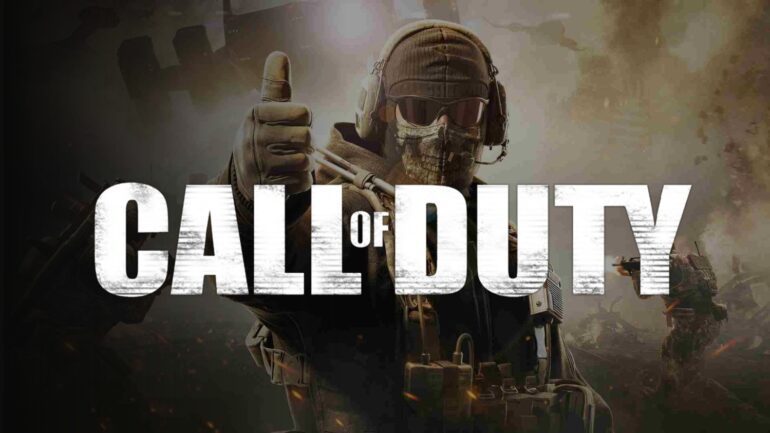TL;DR:
- Call of Duty partners with AI firm Modulate to incorporate ToxMod, an AI voice moderation tool, in its games.
- ToxMod identifies and counters toxic speech, hate speech, and harassment in real-time.
- It distinguishes intent and tone, considering context when evaluating potentially offensive language.
- ToxMod’s focus is on reporting, not punishment, while enforcement is governed by Call of Duty’s Code of Conduct.
- It includes features to safeguard younger players and has introduced a category for detecting violent radicalization expressions.
- ToxMod’s deployment marks a significant shift in in-game communication and sets a new standard for online behavior.
Main AI News:
In an assertive move to foster a more respectful gaming environment, Call of Duty has initiated a collaboration with AI enterprise Modulate, deploying their cutting-edge voice moderation tool—ToxMod—to rein in the surge of toxic behavior within its gaming community. This strategic partnership, proclaimed by Activision, introduces a groundbreaking feature set to transform the landscape of in-game communication across titles such as Modern Warfare 2, Warzone 2, and the highly anticipated Modern Warfare 3.
ToxMod, described as an ingenious innovation by Modulate, launches its beta testing phase today on North American servers. It exhibits a remarkable capacity to instantaneously detect and counteract toxic language, encompassing hate speech, discriminatory expressions, and instances of harassment. This pioneering solution stands as a testament to its creators’ meticulous design, exclusively tailored for the intricate world of gaming.
While ToxMod has already found utility in several VR games, its integration into the expansive realm of Call of Duty, frequented by countless players daily, signifies a monumental advancement in its deployment and impact. The alliance between technology and entertainment is unmistakable—ToxMod is positioned to execute its role as a guardian of conduct on an unprecedented scale.
However, a crucial distinction must be drawn—ToxMod’s role remains within the boundaries of observation and reporting. It refrains from unilateral punitive measures. According to the recently unveiled voice chat moderation Q&A by Call of Duty, the AI’s mission revolves around identifying toxic behavior patterns and reporting them for further evaluation. The subsequent course of action is determined by Activision, underscoring its commitment to maintaining a balanced and fair ecosystem.
Beyond a mere lexical analysis, ToxMod’s prowess lies in its ability to gauge tone and intention, a level of sophistication that sets it apart. This remarkable skillset, born from the scrutiny of diverse linguistic backgrounds, empowers ToxMod to distinguish between malicious intent and innocuous interaction. Modulate’s methodology, while not entirely transparent, showcases the depth of its insights and expertise.
A fascinating aspect of ToxMod’s approach is its impartiality in deciphering contextual intricacies. It recognizes that certain terms, though historically derogatory, have been reclaimed within specific communities. For example, the term ‘n-word’ is considered differently based on its usage and reception. ToxMod, without identifying individual ethnicity, takes into account the communal dynamics to ensure a comprehensive assessment.
Modulate’s ethical framework accentuates its responsibility to safeguard younger participants. The technology acknowledges the vulnerability of prepubescent speakers, leading to stricter evaluations for certain types of interactions that might pose risks to minors. This commitment demonstrates a multifaceted approach to moderating diverse player demographics.
In a stride towards continuous enhancement, ToxMod has recently introduced a category targeting ‘violent radicalization.’ This innovation, rooted in meticulous research and consultation, identifies expressions related to extremist ideologies and recruitment tactics. The system’s adeptness at discerning latent signals, even in seemingly innocuous phrases, underscores its vigilance.
In essence, ToxMod’s introduction heralds a significant shift in Call of Duty’s community dynamics. While ToxMod bridges the gap between potential violations and human intervention, the ultimate arbitrator remains Call of Duty’s Code of Conduct, ensuring a harmonious coexistence of technology and human judgment. This resonates with approaches undertaken by industry counterparts, such as Riot and Blizzard, who also navigate the nuanced field of voice chat moderation.
The global rollout of ToxMod is slated to coincide with the launch of Modern Warfare 3 on November 10, initially encompassing English-language moderation before expanding to accommodate a wider linguistic spectrum. This pioneering endeavor marks a definitive stride towards a more inclusive and respectful digital realm, setting a precedent for others to emulate.
Conclusion:
The integration of ToxMod in Call of Duty signifies a progressive step towards combatting toxicity in online gaming. The AI-powered moderation tool’s ability to accurately assess context and intention, along with its collaboration with human moderation, sets a promising precedent for fostering a more respectful and inclusive gaming environment. This move reflects a growing trend in the gaming market where AI is employed to enhance player interactions, thereby raising the industry’s standards for responsible gaming.

